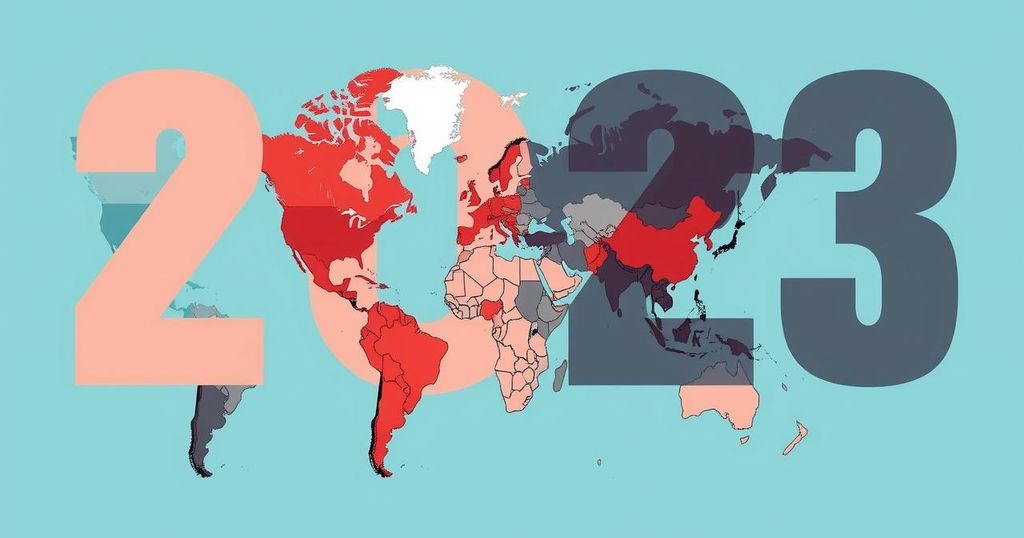Global Elections in 2024: A Year of Turmoil and Transformations

The year 2024 witnessed significant shifts in political landscapes as voters in about 70 countries expressed their dissatisfaction with incumbent governments, resulting in numerous electoral defeats. High inflation, economic instability, and social discontent fueled anti-incumbent sentiments, leading to the rise of disruptive political movements, notably from the far right. Allegations of foreign interference and ongoing political unrest further complicated the democratic processes in various nations, setting the stage for an uncertain future in democratic governance.
In 2024, voters across approximately 70 countries exerted their democratic rights, leading to significant shifts in political power globally. Many incumbents faced repercussions for their handling of economic challenges and crises, resulting in a wave of electoral defeats. As citizens expressed frustration with governing parties, candidates from the far right and populist movements gained prominence, reflecting a heightened sense of volatility in democratic processes. The year witnessed dramatic events including widespread protests in regions such as Mozambique and Georgia, alongside allegations of political interference and electoral fraud in various nations.
In South Africa, the African National Congress experienced a notable decline, culminating in a coalition government following years of dominance. Other nations, including India and Japan, also saw the ousting of long-standing governing parties due to public dissatisfaction. Additionally, as elections unfolded, allegations of external meddling, particularly regarding Russian influence, raised concerns about the integrity of democratic institutions.
As 2025 approaches, the landscape remains fraught with uncertainty. The emergence of new political factions, notably in the UK and across Europe, signifies a shifting tide in public sentiment. Despite a general desire for democratic governance globally, there exists a significant disconnect between theoretical support for democracy and the populace’s satisfaction with its current execution. The forthcoming elections in countries such as Germany and Canada may exacerbate these tensions, underscoring a call for reflection on democratic practices worldwide.
The past year was characterized by a notable increase in voter discontent with established political systems, as evidenced by the results of elections across multiple continents. Inflation and socioeconomic disturbances resulting from the COVID-19 pandemic and international conflicts notably contributed to this anti-incumbent sentiment. As citizens increasingly sought alternative governance models, rising far-right and populist initiatives came to the forefront, challenging traditional political structures and revealing a precarious state of global democracy.
In conclusion, 2024 marked a pivotal year for democracy, characterized by widespread electoral shifts driven by public discontent and a retreat from traditional governance by long-standing parties. The emergence of new political movements alongside concerns regarding electoral integrity signals a transformative period. Moving forward, there is a pressing need for governmental accountability and the alignment of democratic ideals with citizens’ expectations to ensure the stability and efficacy of democratic institutions worldwide.
Original Source: www.clickorlando.com







